Let’s face it, phone cases are kind of crazy. They are built to last forever, yet they become obsolete once the next upgrade is rolled out. My phone recently quit working (15 days after the manufacturer’s warranty wore off….) putting me in the not-so-unique position of having to find a new or refurbished phone. While looking, I realized that I might also need to buy a new phone case and screen protector to go with it.
It turns out you can buy glass screen protectors instead of plastic, and I emailed someone at Zagg, a company that makes glass screen protectors, and they told me that they are in fact recyclable. Their screen protectors also come with a lifetime warranty, however, if you choose to cash in on that warranty you will have to send your broken screen protector back to the company and they do not recycle them. Along with the buying a screen protector also comes the plastic packaging the protector is shipped in. At the moment this seems unavoidable unless you choose to go without a screen protector all together.
As for actual phone cases, I did find some compostable options made using plant based bioplastics, and if that isn’t your thing there are some wood and leather options as well. All of the companies listed are making the environment a priority in their products and in their companies in general. Knowing that my case is made out of sustainable materials by a company that values their employees and the materials they work with is important to me. And these companies are doing just that.
(These cases are listed in no particular order.)
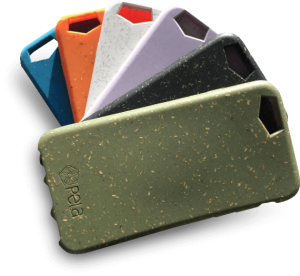
Pela cases are made from a material they call Flaxstic™, which according to their website makes this case 100% compostable in a backyard bin or when sent to a commercial recycling facility. Don’t have one of those nearby? Pela has you covered. The company uses a closed-loop product cycle, meaning they will take back your used case and make it into new product before ultimately composting the final product. And to top it off, if you send back your old Pela phone case you’ll get 10% off your next purchase.
When you order a Pela case it is shipped in 100% recycled Kraft paper. They recently switched from mailing their cases packaged to sending them out package free in just the Kraft paper and a box. Not only is this switch good for the environment, but it saves them money, which they are putting to good use. All the money that they save by reducing the amount of packaging is going to organizations that they believe in. Pretty cool, right?
All of their cases are made in Saskatoon, Saskatchewan, and as it says on their website they are “Proudly Canadian”. Pela cases are currently only being made for iPhones.
Price: $34.00 – $39.00
The eCo-cover phone cases are made out a 100% non-GMO corn rubber, and are made exclusively for iPhones. This makes their products 100% compostable. Even the dye they use to color their cases is made from naturally occuring minerals, though this does mean there are only two color options available; green and black. The cases are shipped using recyclable and compostable card stock packages made from certified, sustainably harvested wood made with wind energy.
eCo-cover partners with Earth Guardians, an organization of youth leaders from around the globe who are fighting for a more sustainable future. All the proceeds from their Earth Guardian cases go directly to the organization to help them continue spreading their message and fighting for a greener tomorrow.
The cases are produced in Hastings, Nebraska. As a Midwestern girl myself, I’m happy to see sustainable products being made so close to home.
Price: $14.95-$39.95
These stylish phone cases are made from corn starch and certified Australian Timber making this case 99% compostable. The only non-compostable part of this case is the tape that is used to bond the wood to the corn starch case. Once you’re done using your case, the tape can be taken off (I was told it takes all of two minutes) and the rest of the case can be safely composted in a home composting unit (they say it only takes 9 months for the case to fully break down).
IBark is based out of Byron Bay, Australia and currently only makes cases for iPhones.
**This product is currently still in the tooling and production phase and will not be available to buy until November. To see how you could be the first to receive one of these cases, check out my Instagram account for giveaway information.**
This small company based out of Portland, Oregon makes beautiful phone cases are made out of locally sourced, and sustainably harvested wood finished with a vegetable based oil and some are also made by incorporating vegetable-tanned leather into the design. The only non-wood or leather part of this case is the 3M adhesive tape that is used to hold the case together. This tape can be removed (they recommend soaking it overnight and then scraping the tape off) and the wood case can be composted. The leather is, unfortunately, not compostable because of the tanning process, but the company does send all of their leather scraps to be recycled into new materials.
Currently these cases are only made for Apple products.
Price: $99
A funny name for a very cool product. This company is also based out of Portland, OR and makes wooden and leather cases. Their cases are made for a variety of phones, and if you don’t see your device on their website you can order a custom case for it. How cool is that? They can also do custom etching to make your case a one of a kind.
These cases are made of sustainably harvested wood or out of leather. The cases aren’t your typical snap on style. They come with 3M tape that adheres the case directly to your phone. This makes the cases one use items, though they say on their website that they are built for a long lasting single use.
When you order a product from Toast it comes in FCS certified paper packing. And to top it all off all of their products are made using 100% renewable energy.
Once you’re done with your case it will have to be thrown away, but I still think this is a great company worth supporting even though the case can’t be composted. They have put their focus on getting sustainably harvested materials and using them efficiently, but they are always looking to do more. They minimize their waste as much as possible in the production of their cases and recycle everything they can, plus they have just started a new initiative called One Toast, One Tree where they plant a tree for every cover sold.
Price: $29-$69
If you made it through this list, you may have noticed a trend. Almost all these cases are only made for iPhones, which is a problem if you aren’t on the Apple bandwagon. I had trouble finding plastic free or compostable cases for phones other than iPhones, expect for Toast which makes cases for a variety of phones and can do custom orders.
If you’re wondering what case I ultimately ended up getting, it’s none of them. I ended up getting a refurbished phone in the same make and model that I previously had. This meant that my old case still fit and worked fine. I love having these options available for the next time I need a phone case, but ultimately I like reusing items I already have more than buying new ones…even if those new ones are from awesome companies who are trying to make the planet a better place.
Do you know of any eco-friendly phone case brands? If so, I’d love to hear about them. You can either send me an email or comment below!

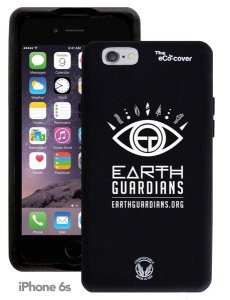
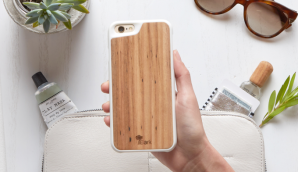
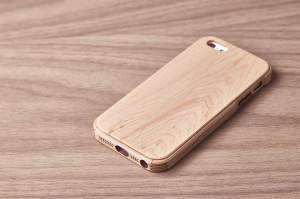
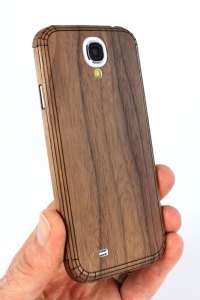
Great article! We always buy our cases from bycsera, totally eco friendly and long lasting. We planted a tree with our purchase as well.
LikeLike
Disappointed to see products containing leather promoted on this list considering how terrible the production of animal products is for the environment. The amount of food and water needed to raise cattle, the amount of methane emitted through their digestive processes, water pollution from their waste, clearance of land for grazing all have a sizeable environmental impact. Apart from fashion alone, I learned only recently that animal agriculture is now the leading cause of climate change in the documentary, Cowspiracy. I had no idea and it seems that many people who do care about the environment aren’t informed as well.
LikeLiked by 1 person